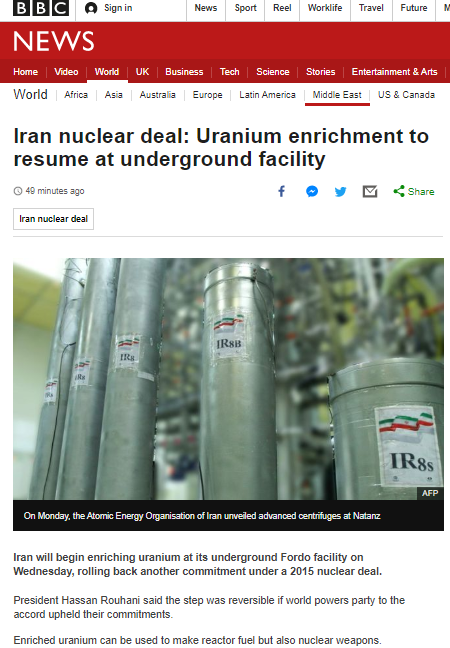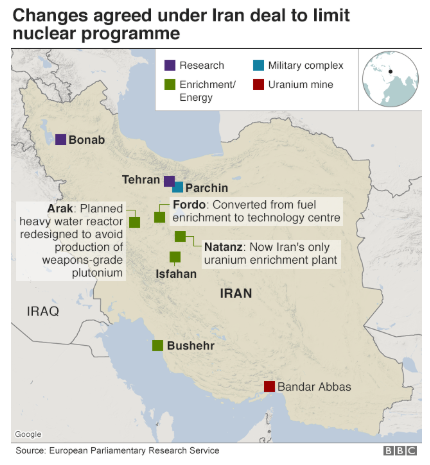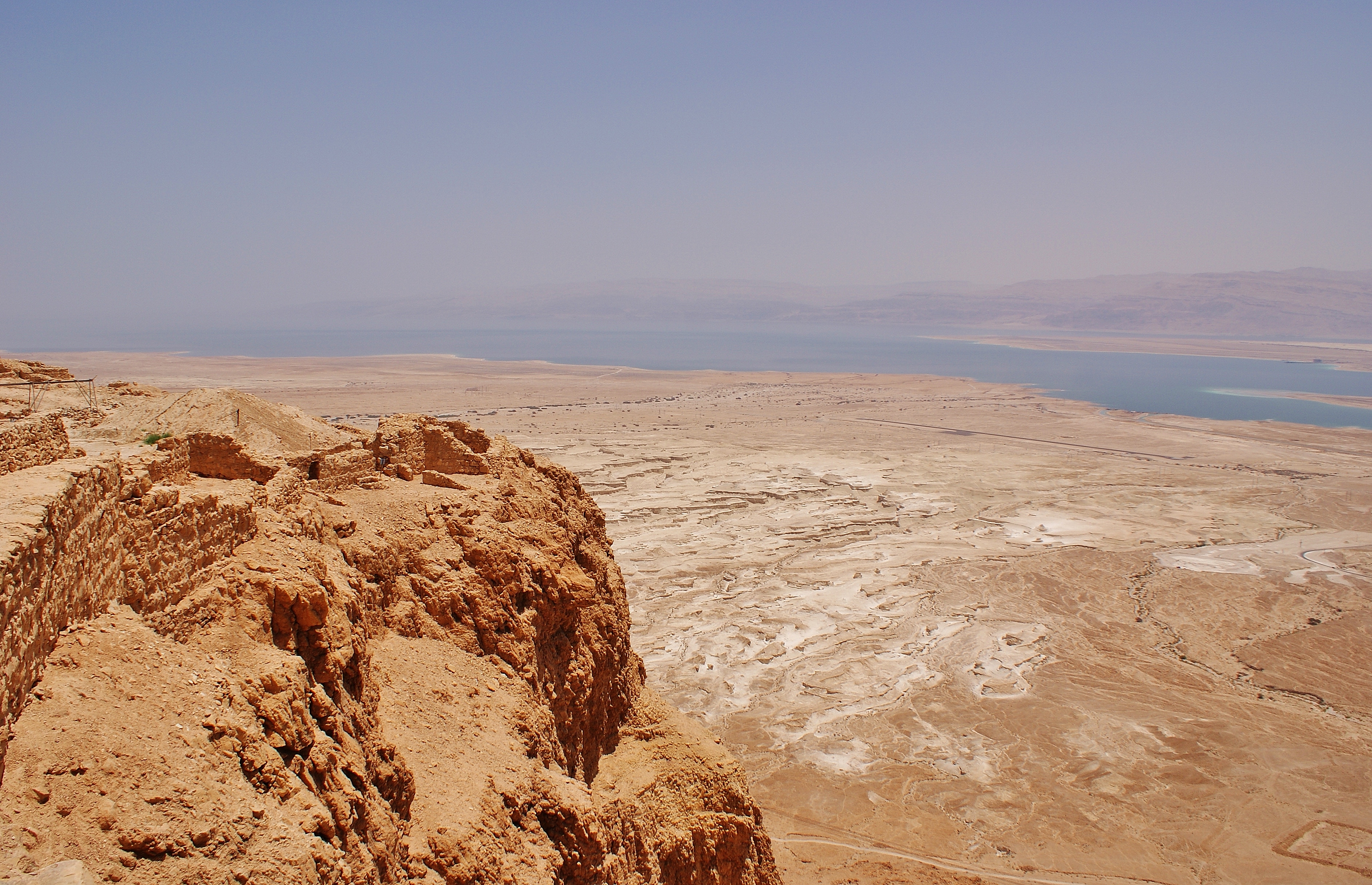Iran’s latest breach of the 2015 JCPOA was portrayed by the BBC as “rolling back another commitment” in the opening line of an article headlined “Iran nuclear deal: Uranium enrichment to resume at underground facility” which appeared on the BBC News website’s ‘Middle East’ page on November 5th.
As is inevitably the case in BBC reporting on that deal and Iran’s nuclear programme, audiences were told that:
“Iran has insisted that its nuclear programme is entirely peaceful.”
The BBC knows that in December 2015 (after the JCPOA had already been agreed) the International Atomic Energy Agency – IAEA – produced a report which stated that:
“…the agency “assesses that a range of activities relevant to the development of a nuclear explosive device were conducted in Iran prior to the end of 2003 as a coordinated effort, and some activities took place” up to 2009.”
The BBC also knows that in April 2018 Israel revealed documents from Iran’s nuclear archive which raised new issues. Nevertheless, it once again chose to amplify Iranian propaganda but not to inform readers of those relevant parts of the story.
Regarding the Fordo (or Fordow) facility at which Iran’s president announced centrifuges would resume operation, the BBC’s report states:
“Before 2015, the country had two enrichment facilities – Natanz and Fordo – where uranium hexafluoride gas was fed into centrifuges to separate out the most fissile isotope, U-235. […]
Iran also agreed to install no more than 5,060 of the oldest and least efficient centrifuges at Natanz until 2026, and not to carry out any enrichment at Fordo until 2031. The 1,044 centrifuges there were supposed to spin without uranium hexafluoride gas being injected.”
An illustration informs readers that “changes agreed” under the deal included Fordo being “converted from fuel enrichment to technology centre”.

Iran did not however comply with that requirement – as explained in this report – but the BBC made no effort to inform readers of that obviously relevant information.




